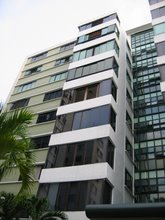The Sale Committee has now called for another EOGM, and is seeking proxies for its position. It would appear that they are determined to begin the collective sale process, starting off with an increase of the recommended Reserve Price (RP) to $xxx million (figures removed for confidentiality reason). This is despite some of the serious misgivings that we, and other owners, have raised in the last EOGM and through written feedback, all of which have not been addressed.
Before deciding whether to sign the Collective Sale Agreement (CSA), we urge you to consider the following issues:
1. All owners need to be aware of the contingency clause 4.1.4 which allows the Sale Committee to go for a lower sale price. In other words, it does not matter if the RP is $xxx million, or $xxx million (figures removed for confidentiality reason), or even $888 million. So long as the CSA gives the Sale Committee the power to accept a lower sale price, there is absolutely no guarantee to any owner that the amount stated in Schedule 2 (Method of Apportionment) is exactly what you will get.
2. While the contingency clause 4.1.4 might reflect ‘common practice’, it contradicts the very bullish and positive signals and rhetoric of the Sale Committee and ultimately expresses a lack of confidence in achieving the recommended RP of $xxx million. A more ‘realistic’ sale price might be offered to the Sale Committee, one that is far below $xxx million, and clause 4.1.4 gives the Sale Committee the power to accept such lower sale price. We have advocated the removal of Clause 4.1.4 from the CSA but this has been ignored.
3. We also questioned, during the last EOGM and via written feedback, the exact and detailed process by which clause 4.1.4 would be executed. What happens if a lower sale price is offered? How will owners be contacted? Who will be contacted? How will the signing of the supplemental agreement be conducted and for how long? What happens if 80% is not reached? Shouldn’t an EOGM be required? The actual process remains vague and ambiguous, which contrasts with the very precise legal nature of the rest of the CSA.
4. We understand that the proposed 60:40 method of allocation of sale proceeds is not acceptable to many owners, who want it to be on the basis of 50% strata area and 50% share value. This would be a fairer basis, as all owners have been paying the same amount towards maintenance and sinking funds all along, regardless of the size of their apartments. Again, this has been requested at the previous EOGM and in written feedback, but the Sale Committee has not acceded to owners' feedback.
5. Another major issue is the exclusion of liability and indemnity clauses in favour of the Sale Committee. These effectively provide that even if the Sale Committee makes mistakes or is negligent, it is excused from liability to the Sellers. If you sign the CSA, you will not be protected at all from any mistakes or negligence of the Sale Committee, and you will have to bear any losses or damages due to such mistakes or negligence yourself. For example, in the Horizon Towers case, when the owners who signed the collective sale agreement were sued for damages by the buyer, they had no recourse against the sale committee. We had previously asked for these provisions to be removed, for owners' protection.
These are very serious problems we have found with the CSA and with the collective sale process. We have repeatedly raised them to no avail. Whether you are for or against the sale is irrelevant when you consider the consequences of these 5 points in the event that a lower sale price is the best offer on the table, or when close legal scrutiny is made of the entire sale. If you agree with us - that the CSA is insufficient, that the conditions are not right, that you worry you might not get what is declared in the method of apportionment, that the method of apportionment of proceeds is not fair, or that there is insufficient legal protection for owners – and you are unable to attend the EOGM, then we request you respectfully to consider giving us your proxies for the EOGM. If you are unsure whether you will be able to attend the EOGM, you may wish to send us the proxy form first. In the event that you are able to attend the EOGM, your proxy will automatically be void by law, and you will be able to exercise your vote personally.
A proxy form is attached for your use. Please pass the completed and signed form to Mr Tan Lai Huat (at Blk 1 #xx-xx) or Ms Wong Hwei Ming (at Blk 9 #xx-xx) or to the Management Office at your convenience, but by no later than Wed, 1 Sep 2010 (as the forms have to be deposited at the Management Office by 2 Sep 2010).
Finally, we would respectfully urge that you take some time now to consider the effect of the CSA on your position and take any professional advice you deem appropriate, rather than wait and see what happens.
This is very important because although you may choose not to sign the CSA now, if the CSA is passed in its current form at the EOGM, and if it later becomes binding on all owners by reason of an order of the Strata Title Board, it will be too late to change any terms at that time. You will then become subject to all the terms of the CSA as it stands, including the sale price, the method of apportionment of sale proceeds, and the indemnity and exclusion of liability in favour of the Sale Committee. Please act now.
Thank you for taking the time to read and consider the points we have raised.
Tags:
